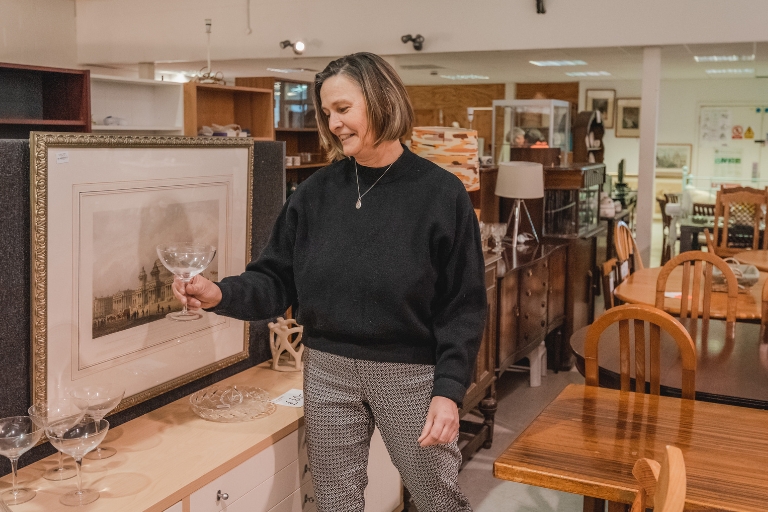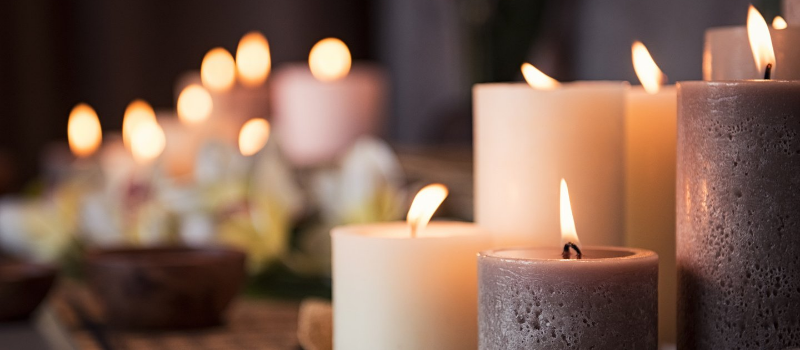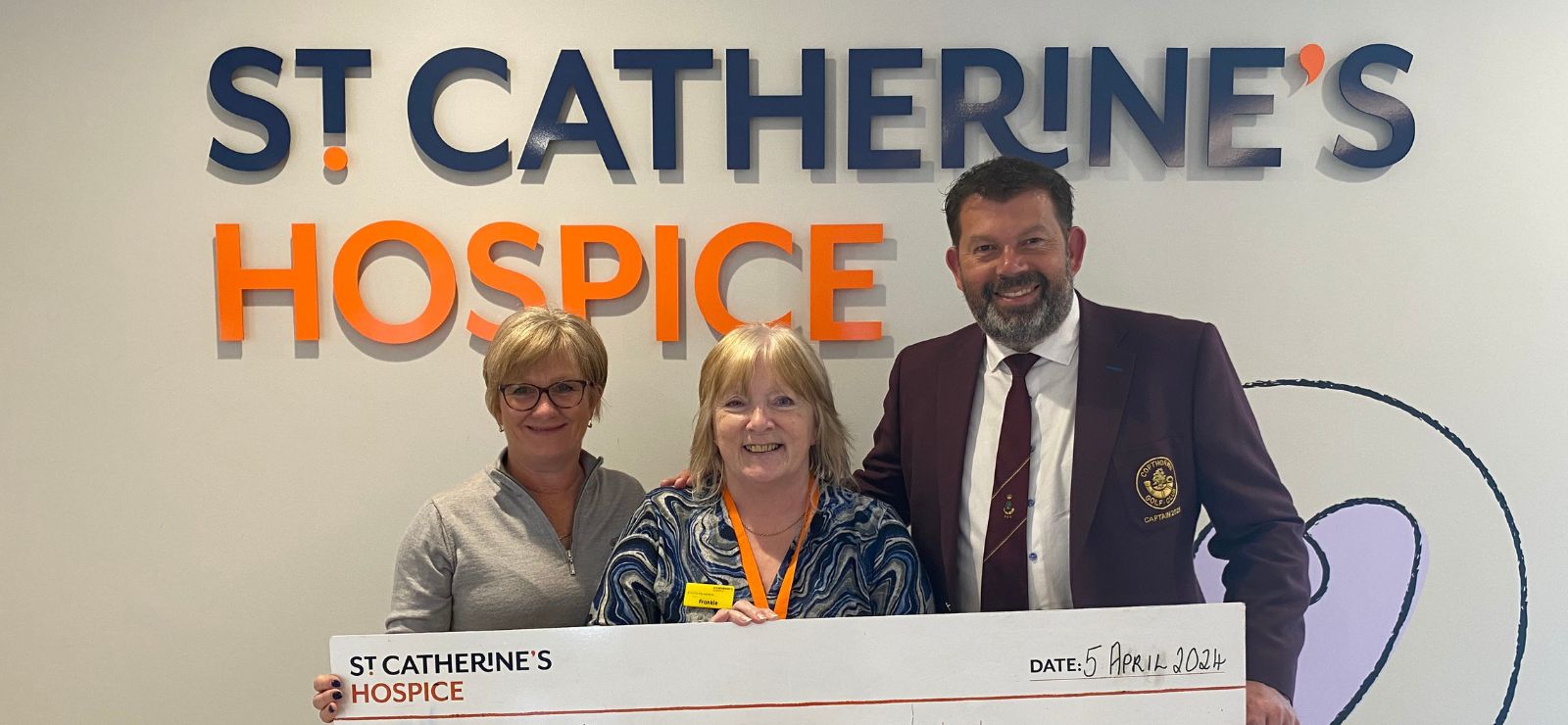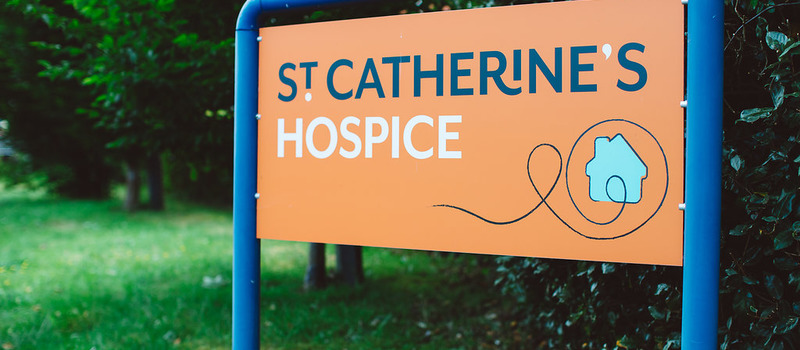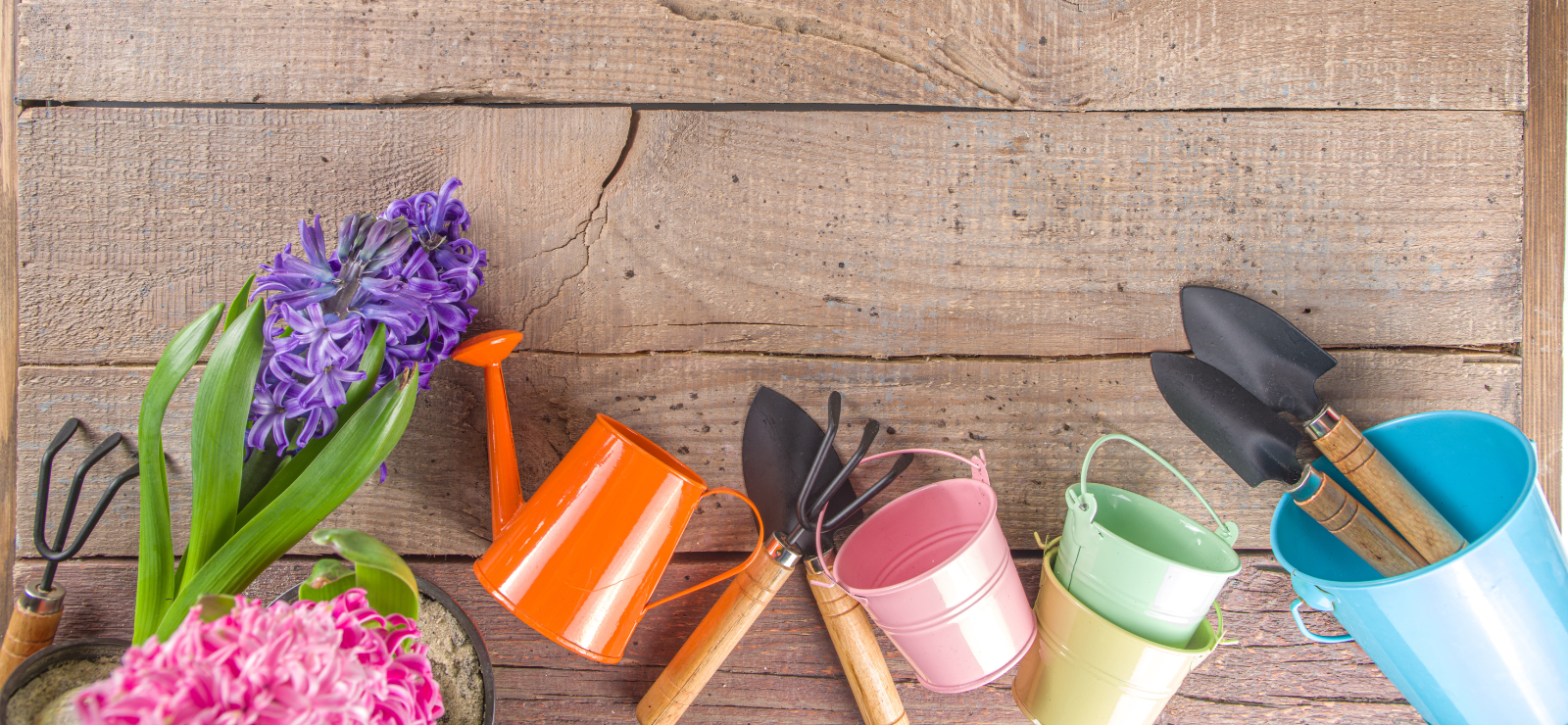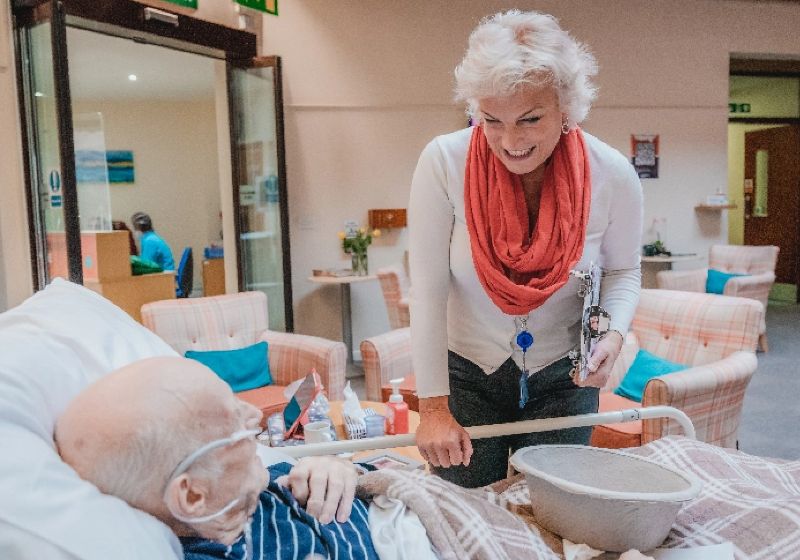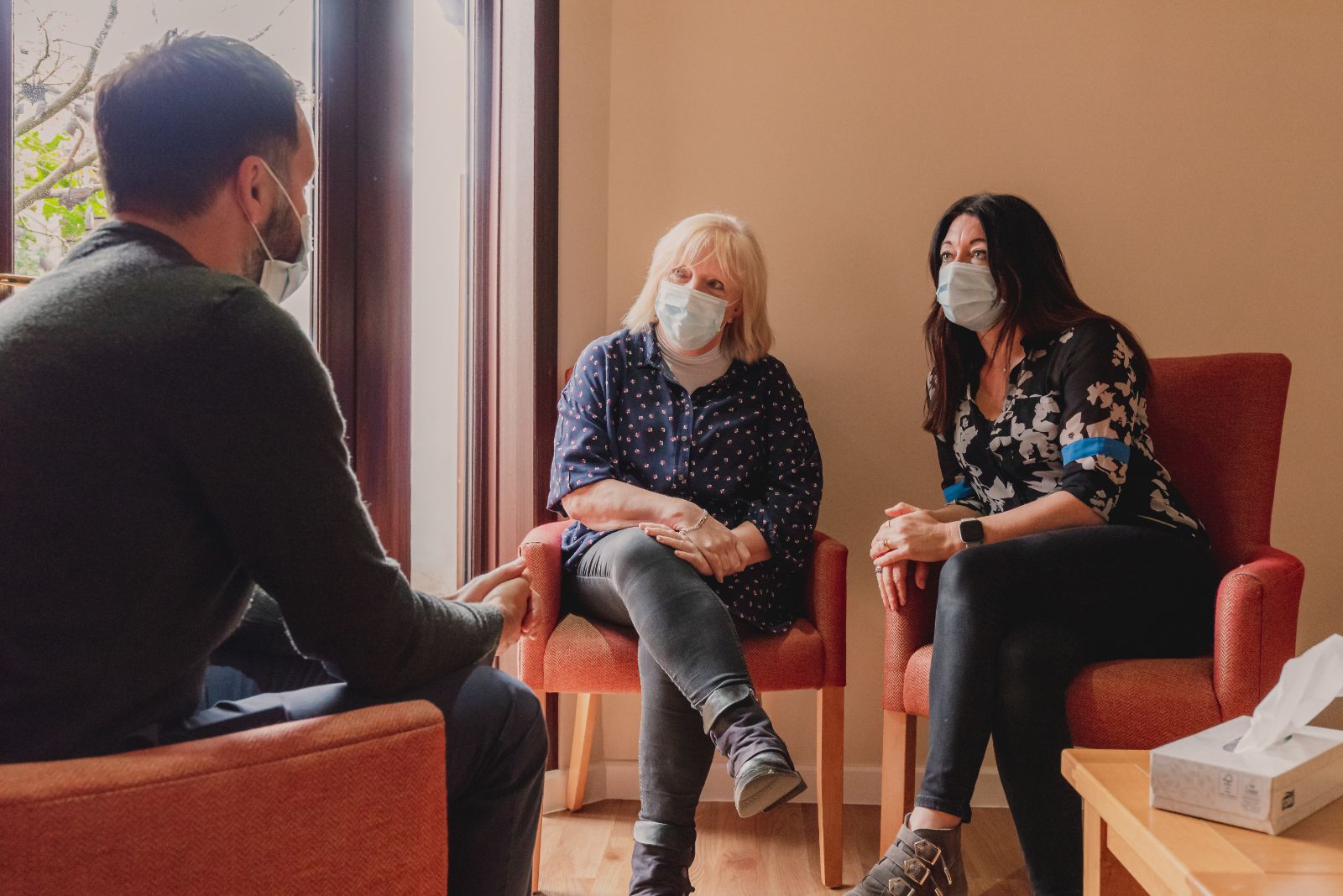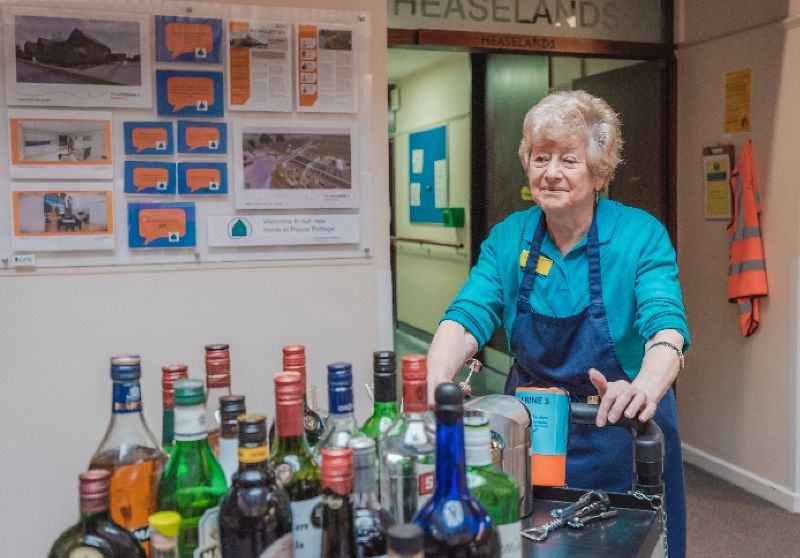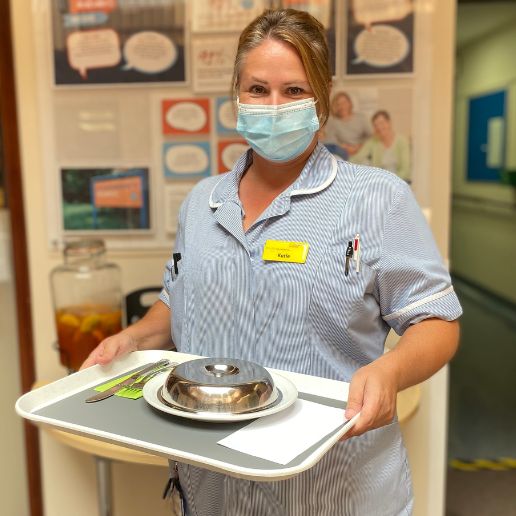“The workshop was a fantastic opportunity for me to learn and reflect”
Laura Stocker, our Marketing and Communications Co-Ordinator, recently attended a funeral workshop held here at the hospice. Here, she shares some of the insights and learnings from the afternoon, as well as offering her thoughts around how faith and spirituality can impact death and funeral rites.
“Hosted by Lisa Rainier, our Chaplain and Lead for Spiritual Support and Judith Dandy, Funeral Director, the funeral workshop was a fantastic opportunity for me to learn and reflect on not only the function of a funeral, but also how it fits with various different multicultural practices and customs.
As a relatively young adult with (thankfully) very little life experience when it comes to funerals, I initially found myself going into this workshop with my own ideas around what a funeral is or should be.
For example, at first, I held the view that funerals were very much for the bereaved, rather than the deceased, to celebrate the person’s life and say goodbye – a fundamental part of the grieving process. However, we were prompted to think about how a funeral might actually also serve someone that has died, even though they’re no longer here.
A quote by Thomas Lynch (Funeral Director and Poet) summed this notion up nicely: ‘the function of a funeral is to get the dead where they need to go and the living where they need to be.’
We also discussed how multicultural/multifaith society can impact various different actions before, during and after death
For example, we were joined by Ashwin Soni, Gurjar Hindu Union Ambassador, who spoke about how Hinduism influences not only the funeral itself but also how someone that is dying should be cared for, and the actions undertaken at the moment of death. Though there may be slight variations in practices according to each family and what is possible (for example whether the dying person was at home or in hospital), traditional rites and customs include praying and reading scriptures from the Bhagwat Gita until the soul’s departure, singing religious songs at the side of the body at the moment of death and then washing and preparing the body (tying the big toes together, placing the hands palm to palm in a position of prayer and shrouding the body in a plain white sheet) after death.
Faith can also impact the speed at which a funeral may need to be arranged, the funeral practices themselves and the mourning period that follows
Ashwin explained that in Hinduism, the body is usually kept at home until the funeral which would (ideally) be within 24 hours after death, or as soon as is possible.
Children up to the age of 5 are buried as they are considered perfectly pure and innocent, but otherwise the deceased is cremated.
The day of death marks the beginning of a 13-day mourning period, whereby a lamp is lit where the body lay in state and the family don’t attend festivals, temples, visit priests or take part in marriage arrangements. At the end of the mourning period, there will be a memorial event and a special prayer, followed by an elaborate meal.
The manifestation of grief varies amongst religions and cultures too
At Chinese funerals, for example, it’s tradition for displays of grief to be open and loud. The larger the inheritance, the louder the bereaved wail. In Hinduism, however, joyous release is encouraged as prolonged grieving is thought to hold the departed soul to earthly consciousness, inhibiting full transition into the heaven worlds.
It was fascinating to hear how the beliefs that we hold, as well as our level of observance and geographical or generational context can have such a large impact on what is wanted or expected from an individual and their family after death.
Thinking about your own funeral, or the funeral of someone that you love can be difficult, but we touched on the idea that it can make it easier for everyone else if others are aware of what is wanted after death
Whilst it may not be a particularly light-hearted topic for a conversation around the dinner table, the workshop has definitely highlighted the importance of discussing the options available and has actually prompted a conversation between my family and I around funerals and what they would want, based on each of their ideals, beliefs and preferences.”
If you or someone that you know is recently bereaved or struggling to cope after loss, we have some helpful Bereavement Support Resources available.


